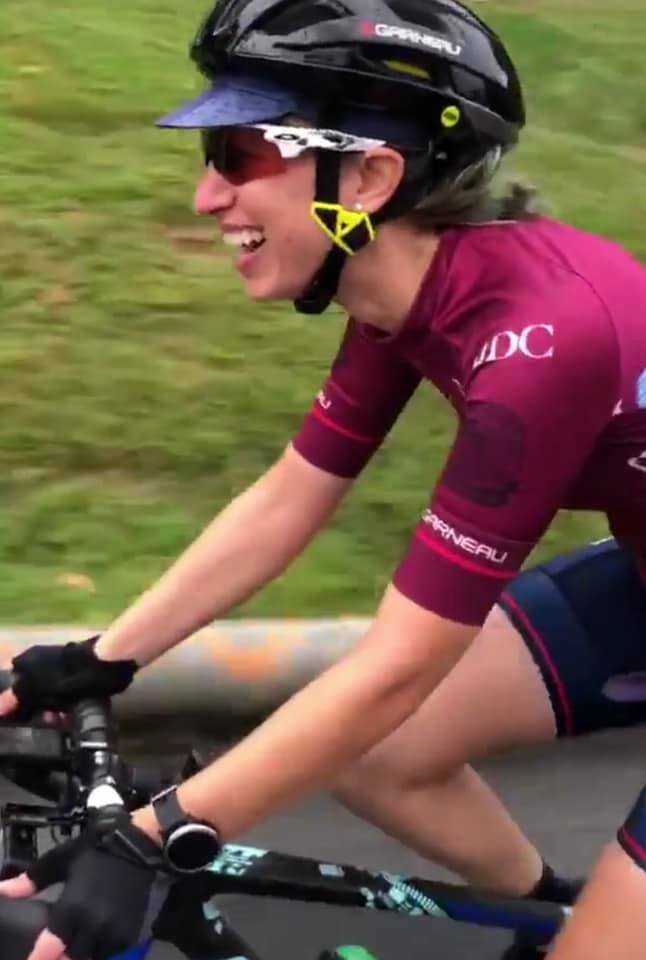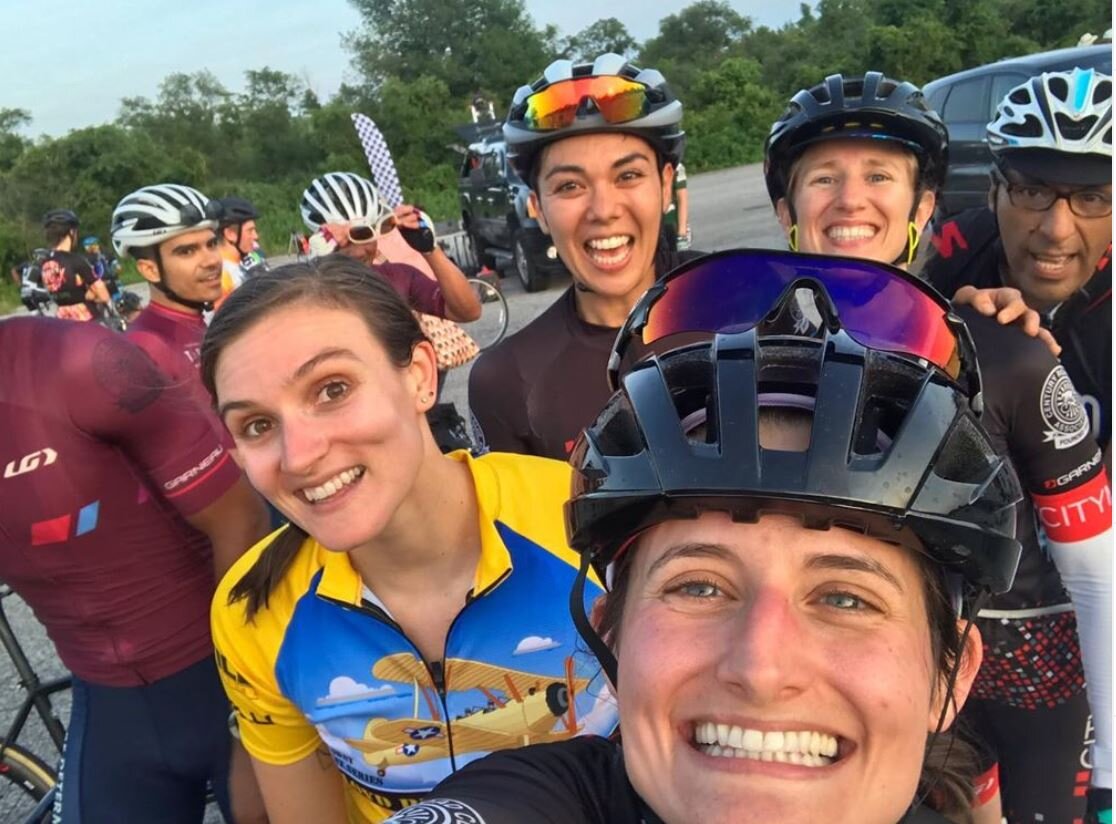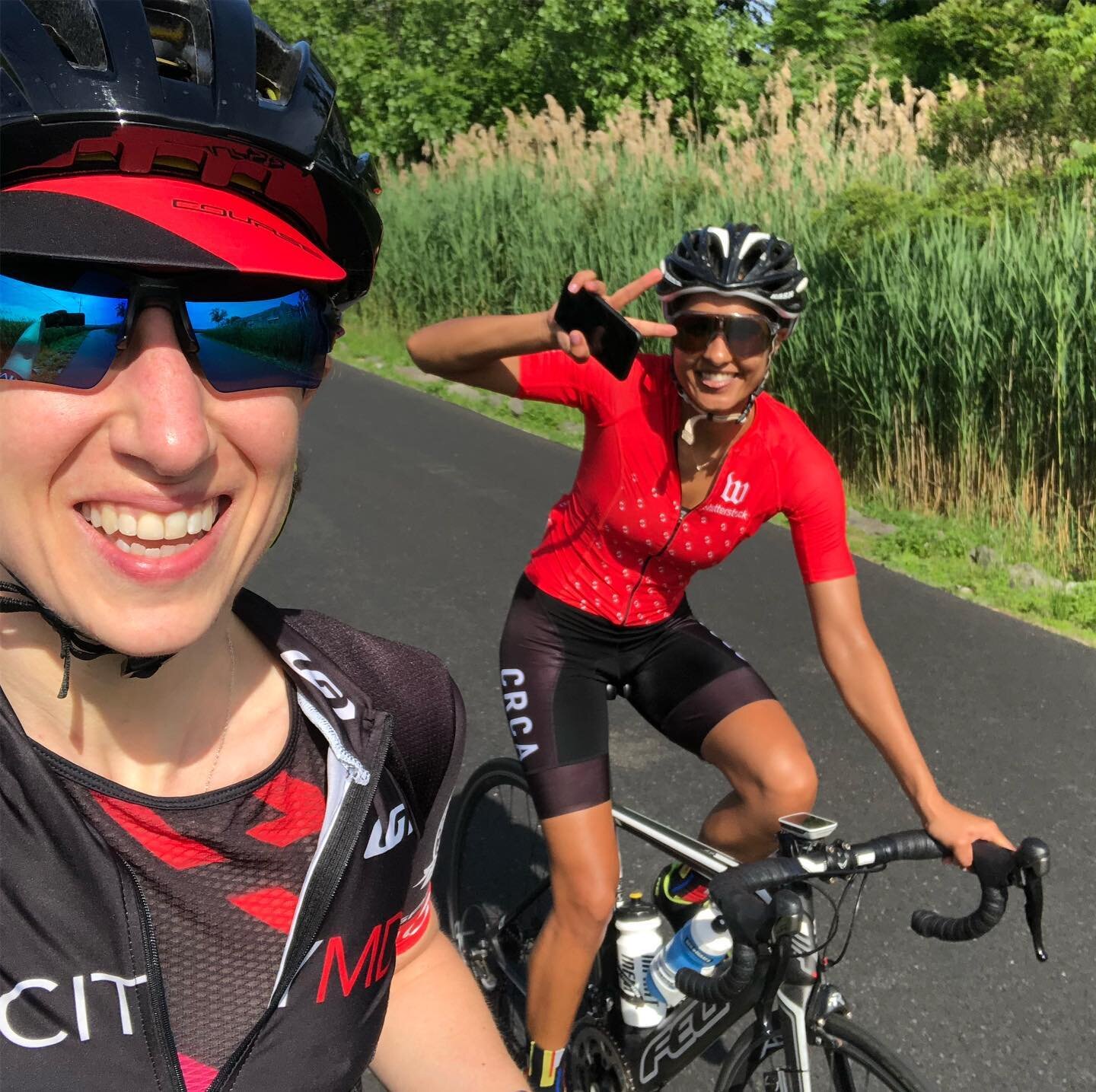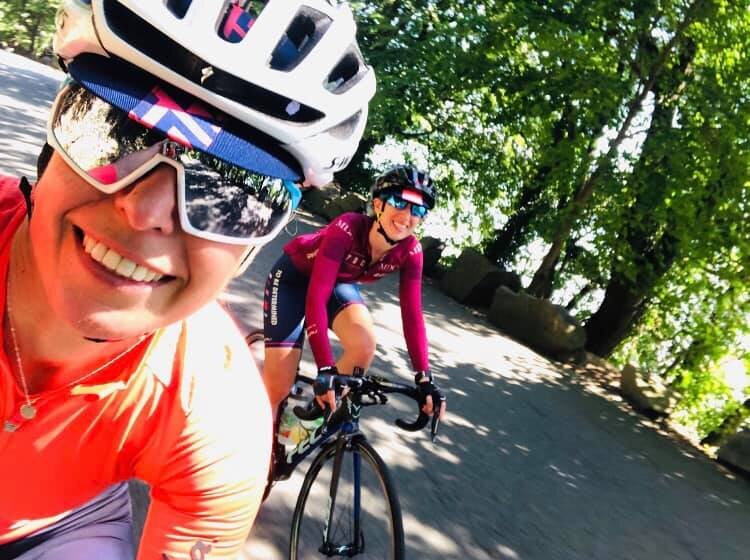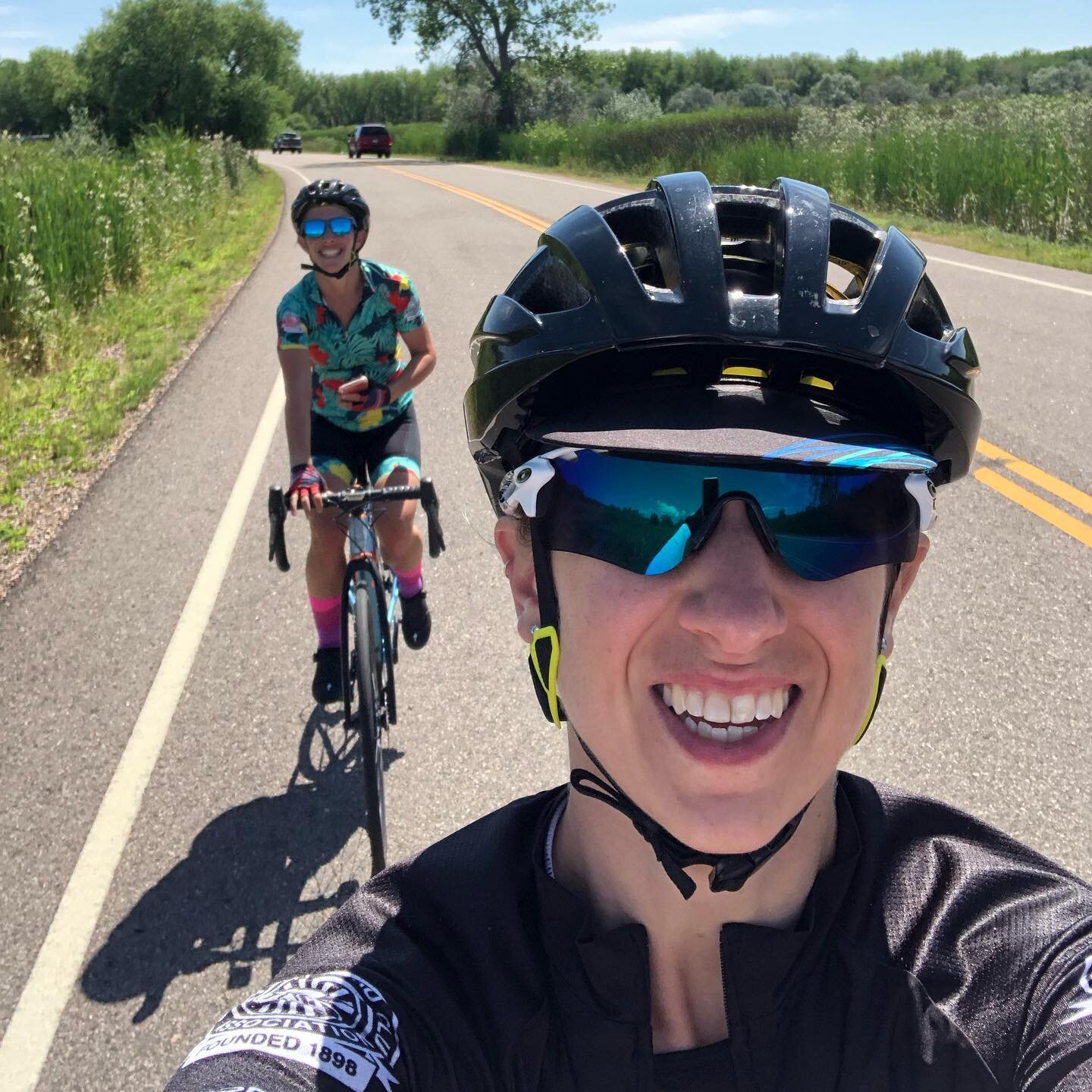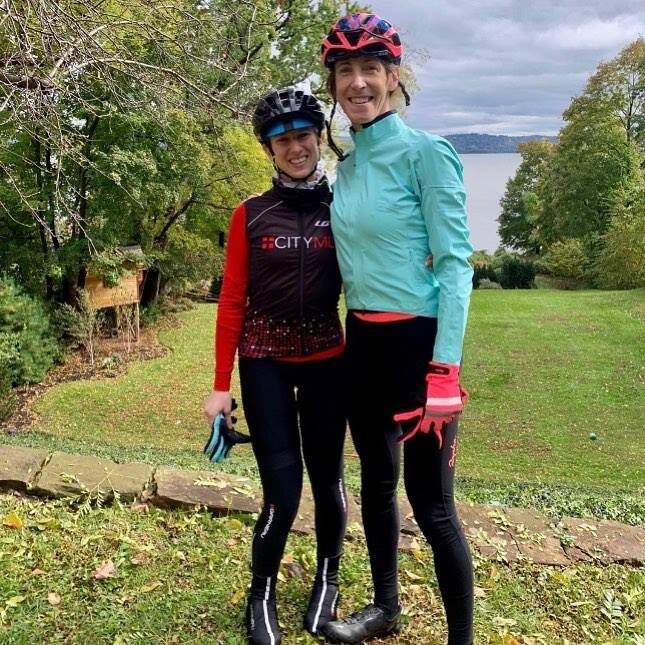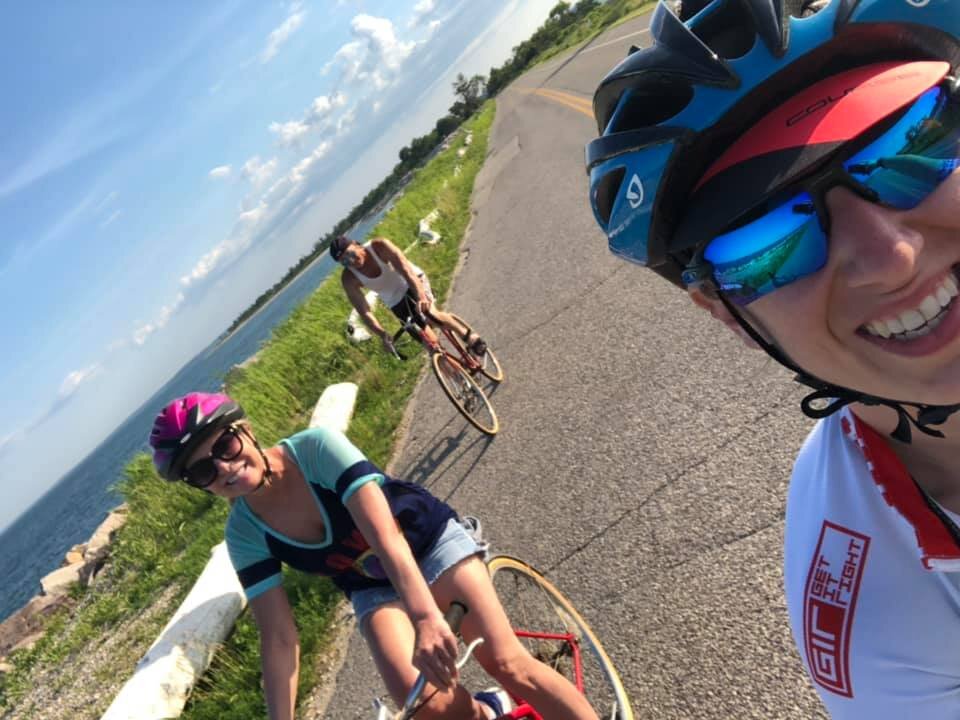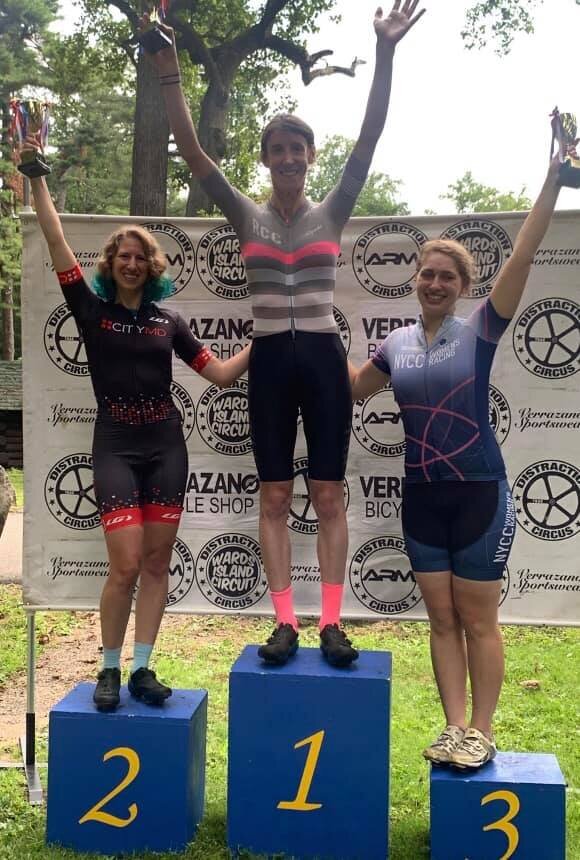Doris Diaries Chapter 3: 10 Things I Learned During My first Racing Season
Now that the start of my second season of racing is edging closer, I’ve been reflecting on how my first one went. Even though it was nearly every weekend for six months, it really didn’t feel all that long. Last year, I joined CityMD Women’s Racing Team which joined with To Be Determined towards the end of the season. Over the season, I discovered that there is a lot more to racing than just jumping on your bike and going fast. These are my takeaways from my first season of racing, including a few tidbits that featured in some of my earlier Doris Diaries:
1) Getting up early sucks and you never get used to it
“Getting up early” does not even begin to describe the time I need to wake up to get to a park race that begins at 5:40am. I live up in Washington Heights so it’s about a ½ hour ride to get to the Boat Basin in Central Park where you need to check in before a race. There is a routine that all cyclists have before making it to the start line. If I want to have enough time to get all that in, I have to wake up at 3:30am during the peak of the season, which is basically the middle of the night. No matter how many times I do it, I still feel like my body can’t function that early and it takes me a while to wake up.
What its like to have cats and bikes…
2) Eat Breakfast / Nutrition in General
Trying to shove food down your throat at 3:45am is nearly impossible for me. I don’t normally eat breakfast to begin with. I’m rarely hungry in the morning but I have learned that your body needs fuel before a race. Typically, I try to stomach a few bites of yoghurt before I roll out and then eat something small like a Skratch Labs Bar or Gu Stroop Waffle when I arrive at check in. There have been races where I did not eat beforehand, have tried to dig deep for some hard efforts, and just felt nothing in the pit of my stomach. No energy at all. I also really struggle to eat during a race. One thing I do to remedy that is to put drink mix with calories into my water bottle so I’m at least consuming something while riding. Fueling your body is crucial.
3) Poop Twice (or more if you can)
This may sound absolutely gross and ridiculous, and I’m not going to go too far into this because I feel like it’s self-explanatory, but bowel movements are important to cycling. Training your body to go before you roll out is a little challenging, especially when it is 4am, but it definitely helps. The bathroom line is often pretty long before a race…
4) Safety First
There is so much more to racing than just riding fast. As a beginner, you need to learn the dynamics, see what the flow of a race is like, try out some race tactics, and the learn proper etiquette. You can’t build a house without a foundation. Participating in the clinics and skills classes are very helpful and are an absolute must. The new upgrade system has an “at will” upgrade from Cat 5 to Cat 4, which quite honestly, scares me a little bit. I think that encouraging people to complete a set number of races before upgrading is a good idea because it forces you to take it slow and really get your handling skills down.
Clinic with Ayesha McGowen
5) Let’s be honest, you might get hurt
In any sport, there is a risk of injury and cycling is no different. Crashes can (and might) happen and it is important to learn how to avoid them. In one of the larger races last season, I ended up just barely avoiding a crash. To this day, I really don’t know how I was able to get my foot down in time. This brings me back to #4, safety first. Always wear a helmet when riding your bike, even if its just around the corner. During races, I also always wear long fingered gloves. Keeping the skin on my hands is important to me. I also can’t stress enough how important it is to hone your handling skills and not rush into an upgrade before you are ready (even if you are stronger/faster than your competition). Finishing a race wheels down is always my number one goal.
This wasn’t during a race, but I crashed out on the decent to The Market and ended up with a cracked helmet. I was totally okay though.
6) Pay Your Dues
The CRCA is an entirely voluntary organization and they can’t put on races if we don’t have marshals. Not only does fulfilling your marshaling requirement make it safe for those who are racing, it is a great way to learn about racing in general, and feel like a Hero. I have chased down an off leash dog and got it out of the way just before the peloton came flying through, got a man out of the way before he was crushed, and educated pedestrians about bike racing. I have marshaled in the pouring rain during the summer and freezing temperatures during early spring. I have been shown such kindness from strangers as well. One woman brought me hand warmers and a couple brought me some tea (thank you!). I have also assisted at the registration table during the Littleton Twilight Criterium in Colorado when it was 95 degrees. Even though it was a little tough sometimes, it is not something I regret and it feels good to give back to the community.
Registration Table at the Littleton Twilight Criterium
7) Winning isn’t everything
I grew up as an athlete and I have always been naturally gifted at any sport I have tried. This, however, has not been the case for cycling. I came into the sport thinking that I would just podium all the time. Needless to say, I had a very rude awakening. What I realized was that there is always someone out there who is better than you. Counting the small victories is just as important. Got a new Strava PR? Excellent! Feeling really strong two days in a row? Amazing! Pushing yourself to do a workout that you really don’t want to do? Fantastic! Tried something new in a race and it didn’t quite work out but you learned something? Good for you! There are so many accomplishments that you make daily and all of these things add up to make you a better cyclist.
I’m towards the back of the pack here.
8) Have a training regimen
If you’re anything like me, committing to working out isn’t always easy. I need someone who can really push me to complete my workouts and hold me accountable to my training. I’m just not all that disciplined. This led me to find a coach. There is no shortage of good coaches and I chose Tara Parsons to be mine. I’d also recommend Zwift and a smart trainer for bad weather and winter training. This trifecta has been a total game changer for me and I feel like I have really improved because of it. Lately, our team has been doing “zwoom” (zoom + zwift) sessions and this has been a pretty good motivator for me. It’s easy to make excuses to myself to get out of workouts but it is much harder to do that to your coach, friend, or teammates (especially when they are on Zoom with you).
“Zwooming” with the team
9) Don’t be a lone wolf
Go out there and make some friends! Remember that everyone starts out as a beginner and there is no shame in being new. Don’t be afraid to approach someone on a ride and just say hi. Chances are, you will strike up a conversation and receive a few pointers. Don’t get me wrong, I often ride by myself, but it is nice to have people that you can do some “gossip laps” with or someone to motivate you to ride when you’re not really feelin’ it that day. I found it really cool to see some cyclists I knew in out of state races that I participated in. It made it a little less scary the first time around and I am grateful that I have become a member of the community. Making new friends and meeting new people has been one of my favorite things about cycling.
Fort Nonsense Uphill Time Trial
10) Remember to have fun!
In the tradition of saving the best for last, having fun is the most important thing about bike racing! Remember why you started doing this in the first place? Cycling gives me joy and this is why I do it.
